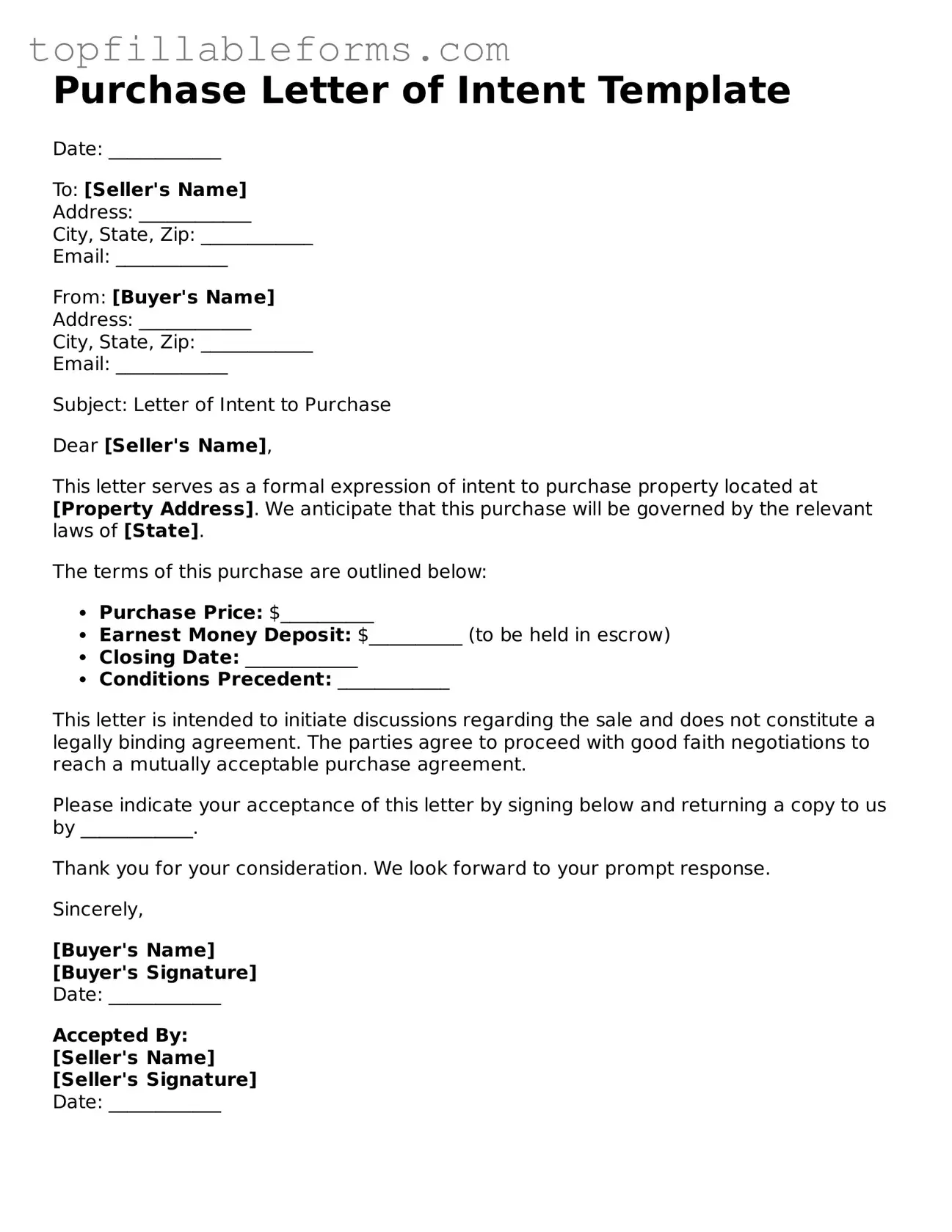Free Purchase Letter of Intent Form
A Purchase Letter of Intent (LOI) is a document that outlines the preliminary agreement between a buyer and a seller regarding the terms of a potential transaction. This form serves as a crucial step in the negotiation process, establishing the intent of both parties to move forward with the deal. By clarifying key elements such as price and conditions, the LOI helps to streamline the subsequent stages of the purchase process.
Open Purchase Letter of Intent Editor Here

Free Purchase Letter of Intent Form
Open Purchase Letter of Intent Editor Here
Finish the form now and be done
Finish your Purchase Letter of Intent online by editing, saving, and downloading fast.
Open Purchase Letter of Intent Editor Here
or
▼ PDF File
